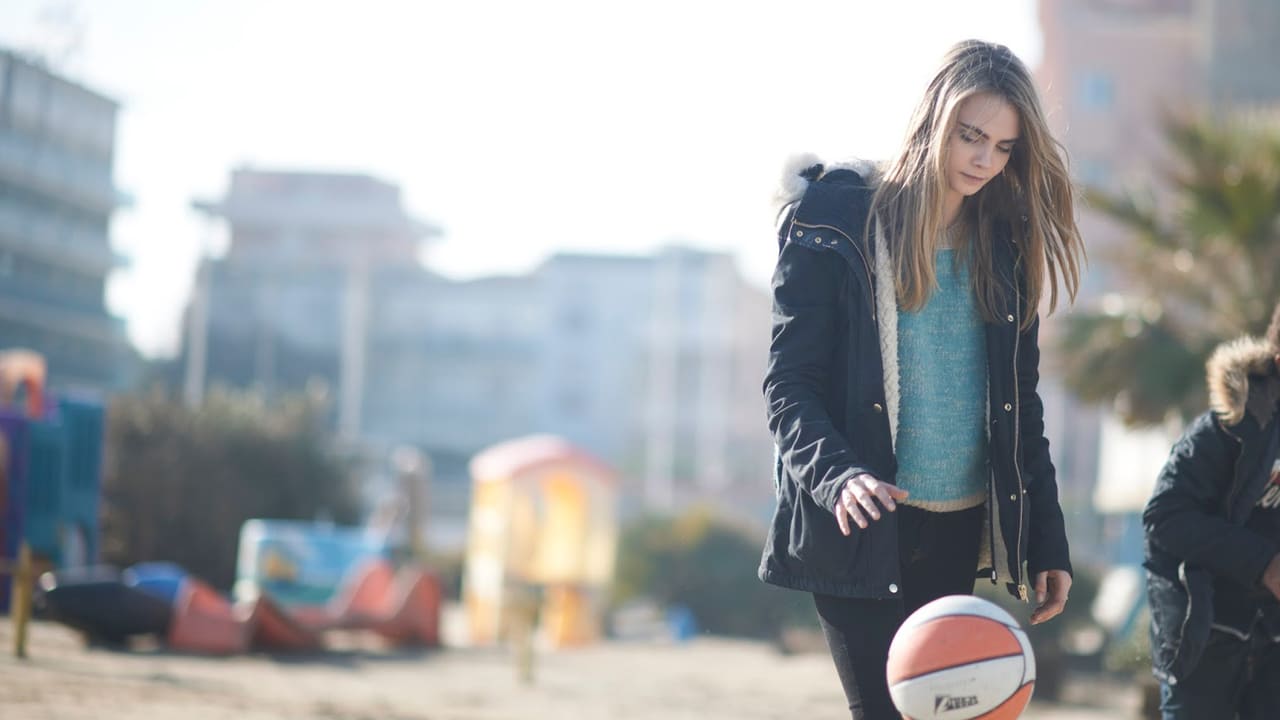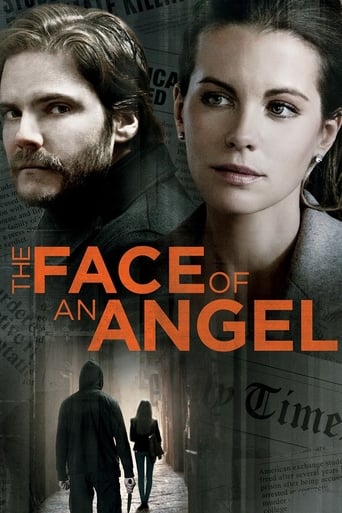

The Amanda Knox saga, on which this is based, is an incredibly compelling real-life thriller. It has all the elements--xenophobia, exotic location, pretty people, legal saber-rattling, murder most foul, the irrationality of the enraged populace, wrongful conviction and a compelling heroine who wins in the end. Now, how do you take THAT and make this incredibly dull, meandering film? I often criticize films that are "Hollywood-ed up," but here, they could have used some Hollywood attention to character development and pacing. The script is limp. The characters are laconic. Nothing much happens. The director has done better. The actors have done better. One day, someone will make a truly compelling film on this remarkable tale. This is not it.
... View MoreAfter reading a short synopsis of this movie it certainly sounded worth a look - that was as close as it got. Why writers and movie makers feel it's their right to make movies about real life murders - then take ugly liberties with the facts in order to spin their own fantasies and selfish motivations go's well beyond any creative forgiveness.Whatever the real life participants may or may not have been - they don't deserve to become an excuse for a fictionalized story about drug and sex abuse by somewhat superficial journalists, novelists, etc - all having nothing to do with the actual case at the center of the movie. This convoluted, sleep inducing, waste of valuable time and resources has earned its failure. BBC and others should have known better.
... View MoreI'll be honest I think seven years is quite a short gap to make a film based largely on the tragic death of Meredith Kercher in 2007, I cannot imagine what the families of all concerned must think, the remainder of my review won't in any other way be clouded my opinions on that fact, tasteless though I find the format.Thomas, a British film maker travels to Siena in Italy, with a view to making a film based on the famous murder several years earlier of Elizabeth, a young student. Elizabeth's friend Jessica and her boyfriend Carlo were arrested for the crime. Thomas meets journalist Simone Ford who offers her advice and help. Jessica was convicted, but a re-trial is set to occur. Thomas begins exploring, he catches site of beautiful young waitress Melanie and forges an acquaintance. Thomas constantly snorts coke, possibly to help him be creative with his script.I know it's a film, but it is stretching the realms of reality, I cannot believe the Police would be keen to speak to any journalists, it would never happen. Plenty of scenes intended to shock, sex, drugs etc.The standard of acting is good on the whole, Daniel Brühl is a wonderfully talented actor, there doesn't seem to be a single role he cannot turn his hand to, the material is sadly a bit lacking for his talent. Cara Delevigne I've grown rather fond of based on her first few performances, I think she's proved a few people wrong, the girl is very good, there's just something about her. I am a fan of Kate Beckinsale, but I have to be honest I found her a little anonymous in this film, she didn't stand out. It is always nice to see Sara Stewart.Some of the imagery really just didn't work, as you get into the film and he starts with the drugs he begins getting some disturbing images, they aren't particularly well realised, none of them work on the whole, the effects are poor.(For any Doctor who fans, do I hear the Ood singing??) The music doesn't seem to be in tune with the film somehow.Overall I think it's a disappointing film, the storytelling itself is largely the issue, it just doesn't flow very well, it's disjointed, and the actions of leading man Thomas somehow feel at odds with the character, through no fault of Daniel Brühl, he battled hard with the script. 4/10
... View MoreThe Face of an Angel, is first of all, not a very great film. It has its flaws, the pacing for example, is not griping enough for one to keep on watching even for a pretending-to-be crime thriller. But undeniably, it is unique kind of a film, and like Walter Raleigh says, "it is adulterated, sanded poetry that makes the best lectures". I never read the book though, so I only feel what the film lead me to. and i have to admit, it is pretty remarkable, give or take. The story is centered around a crime solving: two roommates, Elizabeth the good angelic one is murdered and the public incensed by the media blames the naughty girl Jessica , making guilty and jail of her, which is a typical analogy for the biblical Eva-Lilith situation. The film goes through three genre changes till it ends. The crime thriller is only a pretend, that part is made clear as we are a quarter in the film where the writer-hero warns us that his film would be one of the exceptions of crime thrillers, which means there would be no crime-solving in the end, surely there is none as the film ends. The writer hero actually spends the entire time trying to figure out how to make sense of what he is now telling, constantly explaining his topology and originality in story-making, which can be quite tiresome and irritating to watch sometimes, i have to admit. But the suspense of the film at the same time shifts from a crime solving to a genre figuring: we wonder how the writer-hero is going to make out of this story-telling after all. In the process, the cinematic style changes as he teases us with the structure of Dante's Infernal, taking its semi- Gothic elements, making parallels of the plot: Beatrice guides Dante ascending from hell, as Melanie (Cara's character) guides the writer hero out of his gloom. Then Melanie lead the hero to read"La Vita Nuova", which promises another possible genre change. By now, if any audience haven't abandon the film, they are about to witness the strong ending the film presents. It is strong not in the sense of plot, 'cause apparently nothing happened or is solved: Elizabeth is dead with no one to be blamed, Jessica is set free, but still not free from the blame of the public; it is strong ending shot in a series of melancholic montage, linking the hero's child Beatrice, the adolescent Melanie, and the deceased Elizabeth together, forcing the audience to see the inevitable affiliations between the three: apparitions of the same angel, in her different embodiment of ages. Thus, the film is eventually about a lamentation of beauty passing away, just like the father laments her daughter Elizabeth in her funeral, quoting Dante's lamentation on his beloved Beatrice, the same way the writer hero tries to get hold of her daughter via Skype, through image, but never does for real. It hints in the end, Melanie could be a figurative character out of the writer hero's creation, to let show the beauty's mysterious ways in the world before its passing, the imaginative figure that in reality passes without anyone sees, who also helps him work through his trauma to its lost, similarly as Beatrice to Dante in the inferno. The great thing about this ending metaphor is that it is not explicitly showed,which makes sense given the main tone of the film is still realistic despite monsters appears occasionally in hero's nightmares, breaking the genre for a bit of a sec. The ambiguity of the real and fantastic in this film turns out a big win for me. It's subtle, and definitely requires some patience and overall working-through on the audience's part. When one does figure it out , it leaves you with this lingering sense, a sense of love as well as a reminiscence of the beauty in a general sense, as Dante's La Vita Nuova promises us.Of course, that just might be the original novel telling, not so much about the movie itself. Might as well read the book.
... View More